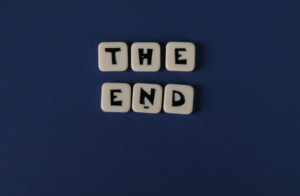Are you facing conflict or tricky relationships in your workplace?
Not sure where to start?
No workplace is immune and, left unchecked, small disagreements can escalate, spread and impact on morale and productivity.
ACAS estimated that workplace disagreements cost UK organisations £28.5 billion in 2021 – that’s more than £1,000 for every employee.
Formal disciplinary and grievance procedures can drag out over weeks and inevitably end up with winners and losers – often neither side is happy! They certainly do nothing to rebuild working relationships.
All too often the end result is a resignation and all the associated costs of recruitment or, even worse, things escalate until you are facing a tribunal claim.
Workplace mediation offers a fast, cost-effective way of resolving conflict at work, providing positive, sustainable solutions.
Mediation In Action – A Case Study
A long-established, successful small business with three directors got in touch. One of the Directors (we’ll call him Rob) had had a poor relationship with the business manager (Debbie) ever since she was appointed. Debbie was the daughter of one of the other Directors and Rob felt he had been excluded from the decision to appoint her.
Rob and Debbie managed to work alongside each other for three years but there was underlying resentment on both sides. A series of relatively small incidents only increased their mutual mistrust and they had reached a point where they tried to avoid each other. Other people in the team were aware of the poor relationship; the bad feeling also started to impact on the relationship between Rob and his co-
director, Debbie’s mother.
Almost inevitably things came to a head, with a very heated and public argument between Rob and Debbie over the treatment of a long-standing customer of the business. Debbie was angry that Rob hadn’t followed correct protocols around charging the customer and Rob was furious with how Debbie then dealt with the (by now very upset) customer. It resulted in a very loud, heated argument between the
two, witnessed by other team members.
We were called by the third Director who was understandably very worried – he feared he was about to lose either a really important member of the team or a co- director. The implications for the business were potentially huge and he was keen to pursue mediation. (Meanwhile he had an irate client to deal with…).
In the individual sessions it became clear that both Rob and Debbie actually appreciated that the other had genuine abilities that were really important to the business; there was, however, ongoing resentment on both sides. Rob didn’t feel that Debbie should be able to direct how he did his work or charged customers. Debbie felt that Rob was constantly undermining her authority, setting a poor example to more junior team members and leaving them in a difficult position when they tried to follow the correct protocols with people who were used to ‘special treatment’ from Rob.
By the start of the joint session, both could already see that some of their behaviour had been unreasonable and apologised to the other. While it might be tempting at this stage to think ‘job done’, nothing could be further from the truth! An apology for a specific incident is always welcome, but doesn’t remove the need to explore the underlying issues that led to this point. Through the joint session Debbie opened up about some of the things she struggled with and how Rob’s negativity really hurt her at times. She also appreciated Rob’s feelings that it was ‘his business’ and he should be able to behave as liked, but managed to convey to him the wider impact of some of his decisions and behaviours, things he hadn’t ever really considered before.
It was a long and quite emotional session, but together they agreed a plan for working together, improving communication and a commitment around how and when to raise issues with the other. The session ended on a really positive note. It’s important to remember though that the mediation is really just the start of a process. It requires commitment from both parties to stick to what they’ve agreed.
When I checked in with Rob & Debbie a month after the session, they both reported that things had been a lot better. Issues still arose, of course, but they now actually knew how to raise them with each other and there had been no more outbursts. They were both positive about the relationship and optimistic about working together in the future.
Contact us to arrange an initial, free, confidential call to discuss how mediation
could help you, or click here to find out more.


